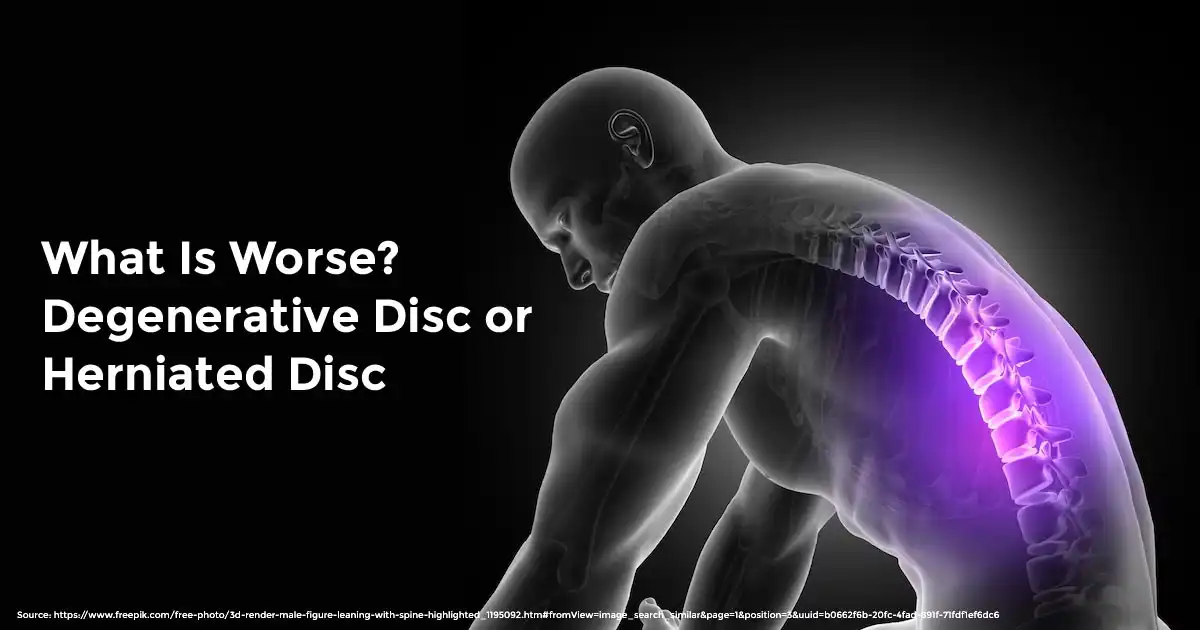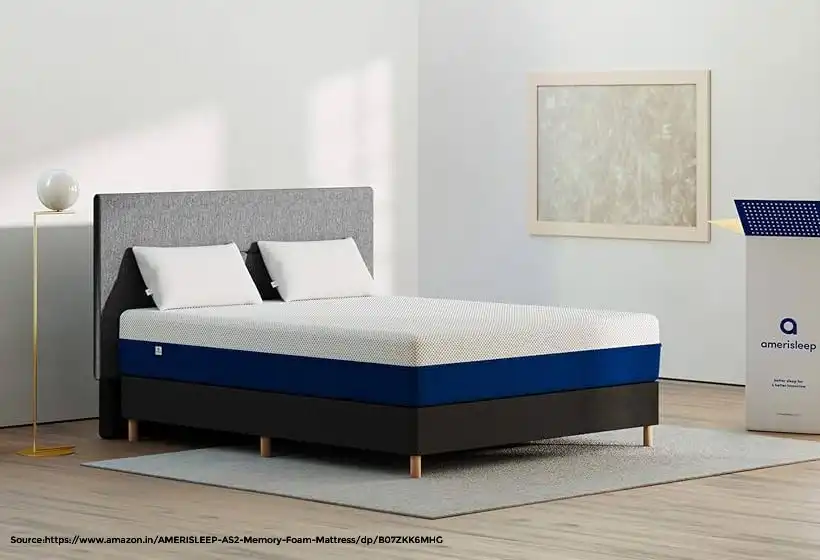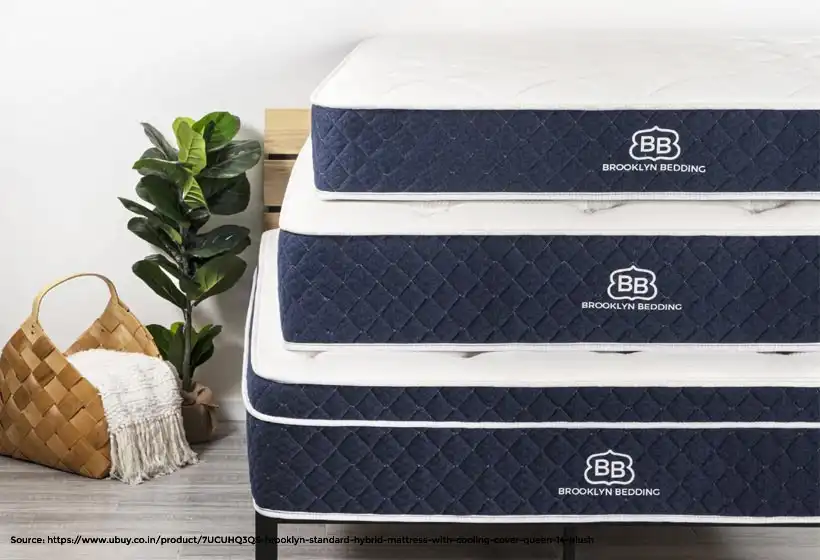What Is Worse? Degenerative Disc or Herniated Disc

Do you experience back pain? Is it getting worse?
You may be suffering from degenerative disc disease or a herniated disc.
However, which is more painful? I’ve been through both in different ways. I can say, both have their own problems. The signs and symptoms can have various impacts on daily life.
A herniated disc can hit you hard with quick pain. On the other hand, disc degenerative disc disease causes slow damage. I’ve talked to people who have been through similar things.
Today, I will try to figure out how these conditions are different. I will help you with the best mattresses to ease the pain.
Keep reading!
What is a Herniated Disc?
A herniated disc is all about the disks, which are the soft cushions between your vertebrae bones. These plates keep everything in place. The nucleus is the soft, jelly-like part in the middle of each one.
When some of that jelly pushes out through a hole in the annulus, you get a herniated disc. This is when the pain starts. That same thing might also be called a slipped or burst disc. I remember being confused by all of these words at first. However, it all made a lot more sense after I learned what was going on in my spine.
What is Degenerative Disc Disease?
Degenerative disc disease is something many of us experience. It happens when the spinal discs start to wear down. These discs act like shock absorbers. It helps us move, bend, and twist without discomfort. Over time, it’s natural for them to lose some of their flexibility.
I didn’t realize how important these discs were until I started noticing the stiffness. It’s something that can affect anyone.
The Key Differences
Both herniated disc and degenerative disc disease affect the spinal discs. The difference really lies in how they start. When I dealt with a herniated disc, it was because the disc material ruptured or got displaced. It usually occurs from a sudden injury or strain.
On the other hand, with degenerative disc disease symptom, it’s more of a gradual thing. It is caused by the discs wearing down over time. It’s like the body is aging naturally. You start feeling those effects over the years.
Both are tough in their own way. However, the causes and how they impact are different.
Now, let us explore the best mattresses for degenerative disc disease!
Best Mattress for Degenerative Disc Disease: Top Picks
- Amerisleep AS2– Best Overall Mattress
- Helix Dawn Luxe– Best Firm Mattress
- Nolah Evolution 15– Best Cooling Mattress
- Plush Beds Organic– Best Organic Luxury Mattress
- Brooklyn Bedding Signature Hybrid– Best Mattress for Active Sleepers
Shopping Guide: Top 5 Mattress for Degenerative Disc Disease
1. Amerisleep AS2

Mattress Type: Foam
Firmness: Medium
Warranty Period: 20 Year
Trial Period: 100 Night
Shipping: Free
Features:
- Bio-Pur® Memory Foam provides pressure relief and contours to your body.
- HIVE® Technology offers targeted support for your head, shoulders, hips, and legs.
- Durable base foam provides a supportive foundation for your body.
- The mattress is made with plant-based materials and is fiberglass-free.
- Cooling technology helps to regulate temperature during sleep.
For more information, read our detailed mattress review!
2. Helix Dawn Luxe
Mattress Type: Hybrid
Firmness: Medium
Warranty Period: 10-15 Years
Trial Period: 100 Night
Shipping: Free
Features:
- The mattress combines the comfort of memory foam with the support of pocketed coils.
- Helix Dawn Luxe features medium-feel responsive foam.
- The Pillow Top offers a plush and luxurious feel.
- Zoned support provides targeted support for the head, shoulders, and lumbar region.
- It helps with degenerative disc disease symptom.
- GlacioTex™ cooling cover helps regulate body temperature.
- The mattress prevents sagging and ensures stability around the edges.
To learn more, check out our in-depth mattress review.
3. Nolah Evolution 15
Mattress Type: Hybrid
Firmness: Plush/Luxury Firm/Firm
Warranty Period: Lifetime
Trial Period: 120 Night
Shipping: Free
Features:
- The 15 inches thick mattress provides ample support and pressure relief.
- Zoned AirFoam™ HD offers targeted support for different body areas.
- HDMax™ Tri-Zone™ Coils provide responsive support and flexibility.
- The mattress features an ArcticTex™ cover and an AirBreath™ Heat Escape Gusset to keep cool.
- Euro Topper provides a plush and comfortable sleeping surface.
For more information, read Nolah Evolution 15 mattress review!
4. PlushBeds Organic
Mattress Type: Latex
Firmness: Medium
Warranty Period: Lifetime
Trial Period: 100 Night
Shipping: Free
Features:
- The mattress is crafted from GOTS-certified organic cotton, wool, and GOLS-certified organic latex.
- Organic wool helps regulate body temperature.
- The organic cotton cover and latex core promote airflow. It prevents heat buildup and ensures a comfortable sleep environment.
- GOLS-Certified Organic Arpico Latex adjusts the level of softness and support.
- The plush pillowtop and latex layers provide good pressure relief.
- Organic materials are naturally hypoallergenic. It reduces the risk of allergies and irritations.
Read PlushBeds Organic mattress review!
5. Brooklyn Bedding Signature Hybrid

Mattress Type: Hybrid
Firmness: Soft/Medium/Firm
Warranty Period: 10 Year
Trial Period: 120 Night
Shipping: Free
Features:
- Hybrid construction combines the comfort of memory foam with the support of pocketed coils.
- 5″ Premium Quilted Top provides moisture-wicking breathability and resists body impressions.
- 5″ Supreme Response Comfort Foam is a hyper-elastic foam. It quickly responds to your movements. This can ease degenerative disc disease symptom.
- 1″ VariFlex™ Transition Foam offers comfort and deep compression support.
- 8″ Ascension® Individually Encased Coils provides exceptional contouring, motion isolation, and edge support.
- .25″ Flex Base ensures a stable foundation for the mattress.
If you are curious to know about the best mattresses for herniated discs, read on!
Are you eager to know, how I managed to improve my degenerative disc disease? Let’s discuss it!
How Did I Cure My Degenerative Disc Disease?
- Physical Therapy
Degenerative disc disease therapy like exercises helps to strengthen my core and back muscles. It helps to reduce pressure on the spine.
- Posture Correction
I made a conscious effort to improve my posture. I did it especially while sitting or standing for long periods. This helped relieve strain on my lower back.
- Low-Impact Exercise
Regular low-impact activities like walking, swimming, and stretching are important. It keeps the body active without stressing the discs further.
- Pain Management
A combination of over-the-counter medications, like ibuprofen, and occasional heat therapy helps. It manages pain and inflammation during flare-ups.
- Dietary Changes:
Eating anti-inflammatory foods and staying hydrated is a way. It helps with overall body inflammation and disc health.
- Weight Management
Losing a few pounds helped reduce the pressure on the spine. This lessens the pain.
- Ergonomic Adjustments
I made changes to my workspace. Getting a supportive chair and adjusting my desk setup is helpful. It reduced discomfort during long hours of work.
- Mind-Body Techniques
Practicing yoga, mindfulness, and meditation helped manage stress. It reduces tension in back muscles.
- Supplements
I took supplements like glucosamine and chondroitin, which some believe may support joint health and relieve pain.
By combining these strategies, I saw significant improvement in my symptoms over time. Here’s a pointwise breakdown of how long it may take for a herniated disc to heal.
How Long Does A Herniated Disc Take To Heal?
- Symptoms often improve within a few days to a few weeks with rest and non-surgical treatments. It can improve if best pain medication for herniated disc is taken.
- Healing typically takes around 4 to 6 weeks with proper care. Exercise and herniated disc are correlated. It includes physical therapy, medication, and lifestyle changes.
- Recovery may take several months (up to 12 weeks or more). This is especially true if surgery is required for treatment for herniated disc.
- The healing timeline can vary based on age and overall health. It depends on the severity of the herniation and adherence to treatment plans.
Some patients may continue to manage mild discomfort or undergo therapy even after the main symptoms subside.
Both degenerative disc disease and herniated discs have their own set of challenges. The real question isn’t necessarily which is worse, but which one is impacting your life the most. Understand your symptoms. You can find the right path to relief and recovery.
FAQs on Degenerative Disc or Herniated Disc
- Which is worse: a degenerative disc or a herniated disc?
A herniated disc is generally viewed as more serious by the medical community. It involves the inner disc material pushing out and pressing on nearby nerves. Herniated discs often cause significant pain or discomfort.
- How long does it take to recover from degenerative disc disease?
For most people diagnosed with degenerative disc disease, over 90% will experience significant relief from lower back pain. People relief from other symptoms within three months.
- How quickly does degenerative disc disease progress?
Degenerative disc disease typically progresses slowly over time. Once a disc is damaged, it can’t heal itself. This process can take anywhere from 20 to 30 years. As the condition worsens, the affected area of the spine becomes increasingly unstable. This causes further discomfort and mobility issues.
- Is a herniated disc the same as degenerative disc disease?
Degenerative disc disease involves a gradual process where the disc wears down over time. It involves losing water and gel components, which support your back. On the other hand, a herniated disc occurs when the disc material is still intact but bulges out. It often leads to a different type of pain.
- Is it possible to become paralyzed from degenerative disc disease?
While it’s unlikely, paralysis can occur due to degenerative disc disease. A serious condition known as cauda equina syndrome can arise from a severe lumbar disc herniation. This leads to symptoms such as saddle anesthesia, mobility problems, and urinary and fecal incontinence. If not treated promptly, this condition could result in permanent paralysis.
